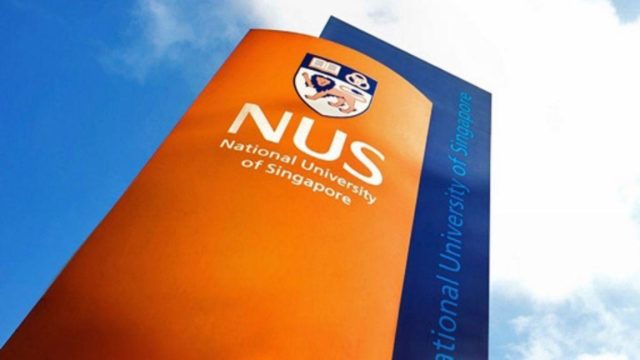Singapore, 2 Apr 2018 – The National University of Singapore (NUS) has been ranked alongside MIT, Stanford and Cambridge in a list of top 10 institutions most often identified as “current leaders” in engineering education.
It is the only university outside of the United States and Northern Europe on the list, which was part of a report from the Massachusetts Institute of Technology (MIT) that looked at worldwide trends in the rapidly changing landscape of engineering education.
The top three were Olin College, MIT and Stanford University. NUS was eighth, ahead of the University of Cambridge in ninth place. Singapore Polytechnic and Nanyang Technological University fell just short of the top 10 list.
The Singapore University of Technology and Design (SUTD) topped a list of top 10 “emerging leaders” in engineering education, which identified a new generation of engineering programmes that include work-based learning, multidisciplinary programmes and a dual emphasis on engineering design and student self-reflection.
The report, Global State Of The Art In Engineering Education, which was released last Tuesday, reviews cutting-edge practices in engineering education.
“Engineers will address the complex societal challenges of the 21st century by building a new generation of machines, materials and systems. We should fundamentally rethink how we educate engineers for this future,” said Ford Professor of Engineering Ed Crawley, of the Department of Aeronautics and Astronautics and faculty co-director of the New Engineering Education Transformation initiative at MIT.
The report noted that SUTD is not structured around “traditional engineering silos”. Instead, students study a common first year before specialising in one of four multidisciplinary pillars – such as engineering systems and design.
SUTD president Chong Tow Chong said it will continually refine and evolve its curriculum to ensure students are “industry, region and future-ready for the fast-evolving global economy”.
Professor Chua Kee Chaing, dean of the NUS Faculty of Engineering, called NUS’ presence in the MIT report “gratifying”.
“We firmly believe that a holistic engineering education is the right approach to training engineers with strong technical skills and the creativity and innovativeness needed to tackle complex social, economic and environmental problems of the 21st century.”
Professor Ho Teck Hua, senior deputy president and provost of NUS, said the achievement showed the commitment and excellent work of its faculty and researchers.
“We are constantly enhancing the transformative educational experience here at the university and this has reaped positive results in nurturing future-ready graduates who are prepared to take on the challenges and excel in the global workplace,” he said.
ST




































